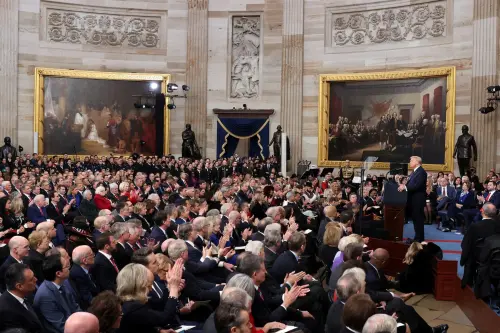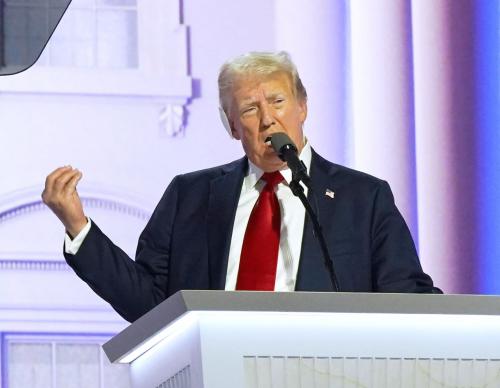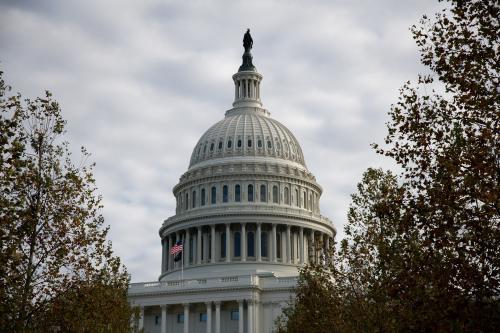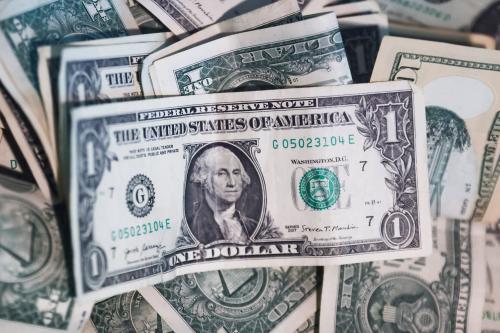President Joe Biden’s first primetime address to the nation showed just how profoundly different his presidency will be from his predecessor’s. He spent a long time acknowledging the enormous loss of life and the pain of those who lost loved ones over the past year. He showed us the card he carries in his pocket every day that contains the number of people who have died of the coronavirus—527,726 as of the speech. “We’ve lost so much over the last year. We’ve lost family and friends.” If Biden’s empathy set him apart from his predecessor, so did his pledge: “We know what to do… tell the truth.” After a year, under Trump, of false promises that the virus would be over, after a year of encouraging careless behavior, after a year downplaying the severity of a virus that only got worse, Biden’s pledge to tell the truth and follow the science marked the second dramatic difference from his predecessor.
But that’s not all. I have written that presidential rhetoric, absent presidential results, is not very powerful. Would we remember Franklin Roosevelt’s soaring rhetoric “We have nothing to fear but fear itself” had the flurry of actions in his first hundred days, especially the bank “holiday”, not stopped the dreadful downward spiral of the economy? Probably not.
So to truth and empathy, we must add results. And there is a third quality that distinguishes Biden from his predecessor. Trump spent a year touting things that never happened. That the virus would be gone by Easter. That hydroxychloroquine would cure the coronavirus. The fact is that he never delivered on any of it. Had he delivered, he might still be in office. Biden knew something that Trump didn’t—a president should under-promise and over-deliver. At a December 8, 2020, news conference where President-elect Biden introduced his health team he made a promise that many at the time said was unworkable: “This team will help get … at least 100 million COVID vaccine shots into the arms of the American people in the first 100 days.”
For nearly two months, as the vaccinations rolled out amidst chaos, the critics looked to be right. But Biden knew something Trump never knew—how to use the levers of power in government. In the previous four years, Biden said, “We lost faith in whether our government can deliver on really hard things.” But halfway into his first hundred days Biden has set about restoring that faith. He has put his government on a war footing, we are almost at the 100 million mark in vaccinations, he has negotiated deals to increase manufacturing, and he has used the Defense Production Act in ways that increase supply and allow him to make a second big pledge: that there will be enough vaccines by May 1 to allow all eligible adults to sign up to get one. This is much earlier than anyone expected.
Even before tonight’s speech the country was responding to Biden. Although his approval numbers are not as high as those of his predecessors (except for Trump), 53% according to FiveThirtyEight, there are other metrics that show the country is responding. A CNN poll conducted before the speech showed 77% of the public saying the worst of the virus is behind us, whereas only 49% said this in January. The same poll showed high levels of confidence in Biden to lead us out of the pandemic. Between the end of January and the speech the number of Americans saying the country was on the right track rose by 7 points, the biggest increase in those numbers since the pandemic began. And in spite of uniform Republican opposition, the new COVID-19 relief law is very popular with the public.
We are experiencing a very different presidency than the one before. But this is not a partisan statement. With the sole exception of Trump, most of our former president have been able to show empathy; Ronald Reagan and Bill Clinton excelled at this, and in moments of crisis, George W. Bush (after 9/11) and Barack Obama (after the Newtown and Charleston shootings) stepped into that role masterfully. Most told the truth and most of them worked the levers of power.
As the Biden presidency returns us to normal, it shows how much of an aberration the Trump presidency was. As if to make this point, on the day of Biden’s first speech to the nation all former living presidents and first ladies made a public service announcement urging Americans to get the vaccine when it was their turn. Missing? Donald Trump and his wife, who had gotten their vaccine in private at the White House before leaving office, without ever encouraging other Americans to do so.
Biden ended his speech promising a return to normal with our loved ones by July 4th—if we keep our guard up, wear masks and get vaccinated. Already pundits are saying the easy part is over and that Biden, due to Democrats’ slim margins in Congress, will have rough days ahead. No doubt there will be ups and downs, but If he keeps under-promising and over-delivering, he will build up the kind of political capital that presidents crave and need.
The Brookings Institution is committed to quality, independence, and impact.
We are supported by a diverse array of funders. In line with our values and policies, each Brookings publication represents the sole views of its author(s).








Commentary
Biden’s first address to the nation: Truth, empathy, and results
March 11, 2021